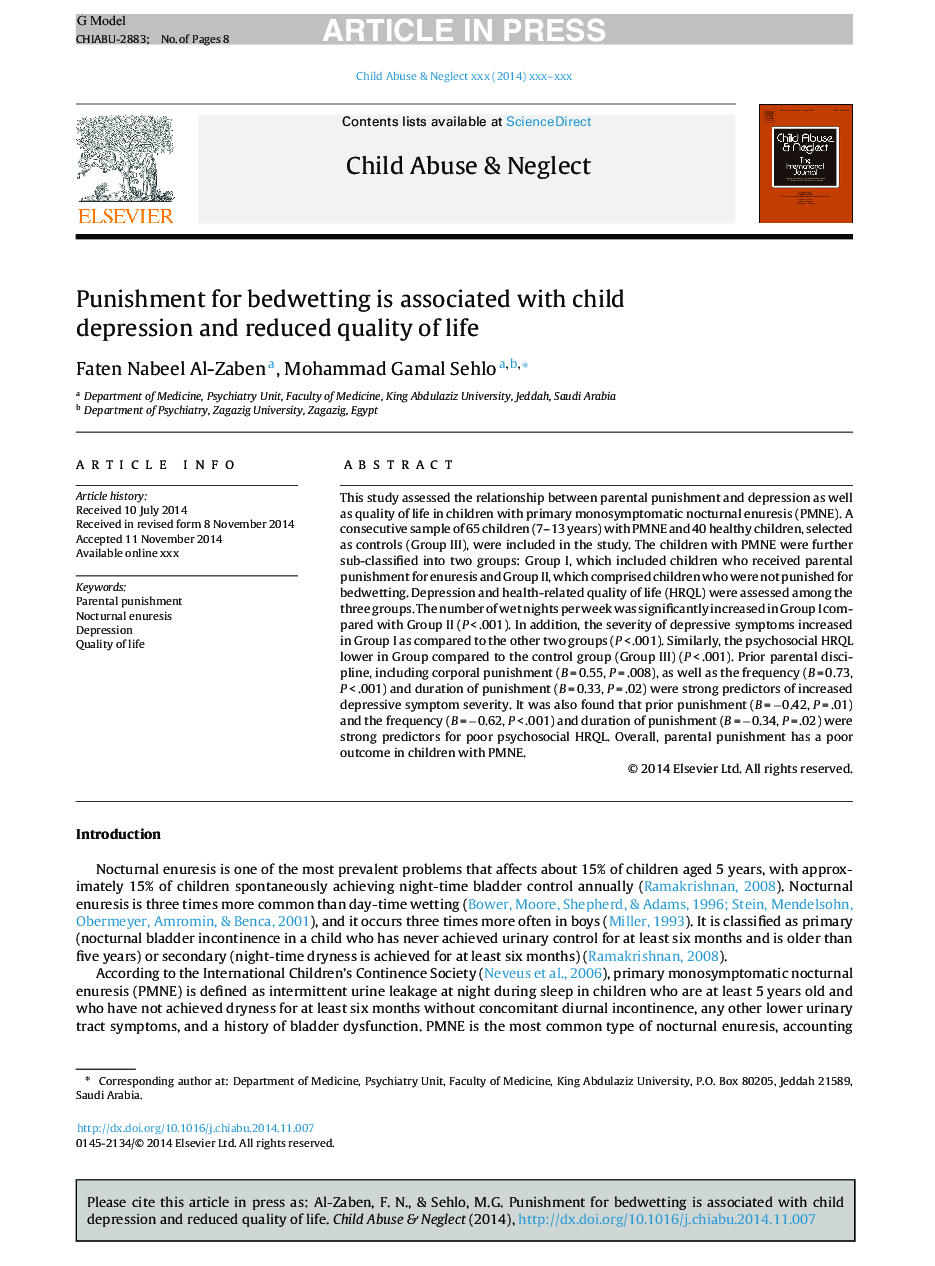| Article ID | Journal | Published Year | Pages | File Type |
|---|---|---|---|---|
| 6832619 | Child Abuse & Neglect | 2015 | 8 Pages |
Abstract
This study assessed the relationship between parental punishment and depression as well as quality of life in children with primary monosymptomatic nocturnal enuresis (PMNE). A consecutive sample of 65 children (7-13 years) with PMNE and 40 healthy children, selected as controls (Group III), were included in the study. The children with PMNE were further sub-classified into two groups: Group I, which included children who received parental punishment for enuresis and Group II, which comprised children who were not punished for bedwetting. Depression and health-related quality of life (HRQL) were assessed among the three groups. The number of wet nights per week was significantly increased in Group I compared with Group II (PÂ <Â .001). In addition, the severity of depressive symptoms increased in Group I as compared to the other two groups (PÂ <Â .001). Similarly, the psychosocial HRQL lower in Group compared to the control group (Group III) (PÂ <Â .001). Prior parental discipline, including corporal punishment (BÂ =Â 0.55, PÂ =Â .008), as well as the frequency (BÂ =Â 0.73, PÂ <Â .001) and duration of punishment (BÂ =Â 0.33, PÂ =Â .02) were strong predictors of increased depressive symptom severity. It was also found that prior punishment (BÂ =Â â0.42, PÂ =Â .01) and the frequency (BÂ =Â â0.62, PÂ <Â .001) and duration of punishment (BÂ =Â â0.34, PÂ =Â .02) were strong predictors for poor psychosocial HRQL. Overall, parental punishment has a poor outcome in children with PMNE.
Related Topics
Health Sciences
Medicine and Dentistry
Perinatology, Pediatrics and Child Health
Authors
Faten Nabeel Al-Zaben, Mohammad Gamal Sehlo,
